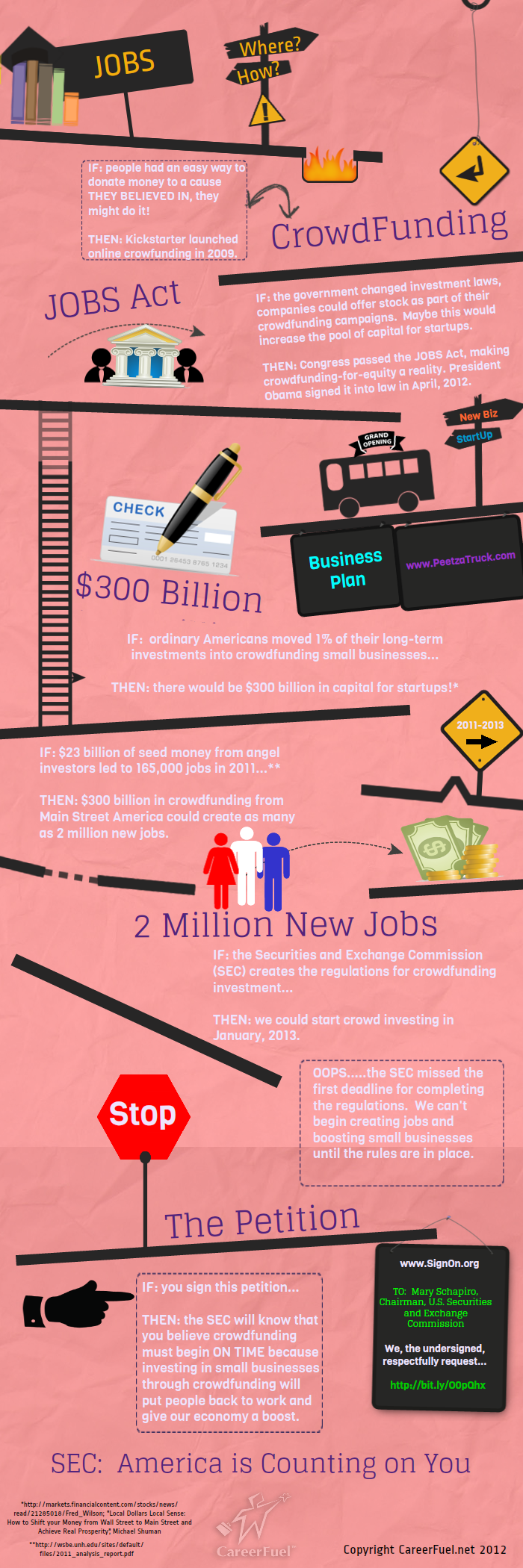CfPA Launches Global Education Network
By: Rob Stott
Still in its infancy, the Crowdfunding Professional Association relied on the expertise of its founders and the skills of its staff to get an online education network successfully off the ground. The goal: to meet the needs of a rapidly emerging industry.
In an industry that seems to be growing and changing by the hour—thanks, in part, to the 2012 JOBS (Jumpstart Our Business Startups) Act—a new associations is moving quickly to help crowdfunding professionals, industry partners, investors, and the general public make sense of it all.
The Crowdfunding Professional Association announced that it is rolling out a Global Crowdfunding Education Network that will provide online resources including breaking news alerts, legislative updates, and crowdfunding classes to professionals in the industry and others interested in learning more about it.
The network is “built to help prepare and educate investors and entrepreneurs for the implementation of Title II and Title III crowdfunding,” the group said in a statement, referring to two sections of the JOBS Act that provide for funding mechanisms for startup businesses.
“The CfPA was founded under the principles of education, advocacy, and awareness at the global industry level for crowdfunding,” said Kim Wales, chair of the CfPA and founder of Wales Capital. “Our real mission is to make sure the entrepreneurs have a place that they can tap into mentorship, build relationships, and build partnerships.”
To launch the website after being formed just last year, CfPA relied on the expertise of its founders, many of whom played a role in creating the framework for the JOBS Act, Wales said. “We’ve taken their approach to create standards, best practices, and guidelines. That’s really what is going to make up the foundation in terms of being able to scale something long term,” she said.
CfPA is getting help from outside sources as well.
“We’re involving the third-party providers, the vendors, the professional service providers, people that are going to be really instrumental in making this process run smoothly, diligently, and transparently,” said Scott McIntyre, cochair of the founding executive committee for education and training, and managing director of Phabriq. “We have to make sure that we’re covering angles that everybody gets.”
Ensuring that the education network was properly designed and marketed meant putting key players throughout the organization in roles that worked to their strengths.
“It has to be organic,” said Wales. “You can’t really force the pieces. The organization is not created on a single person, and it is not created under the view of an individual company. It is a collective view, and that’s for the industry.”
Using the staff’s existing networks and properly promoting the program have been important tactics as well, something McIntyre said other groups can learn from.
“Find the workforce, the people that are going to spread the word voraciously,” he said. “You can have the best idea, the best pitch, or the best website, but if you don’t have a network of people that are following you, that are connected to you, then you are a tree in the forest and no one’s going to hear you fall. Networking is absolutely paramount to any business and is a very valuable asset, one that we cannot undersell.”
Association Now Website: associationsnow.com/2013/02/higher-ed-





